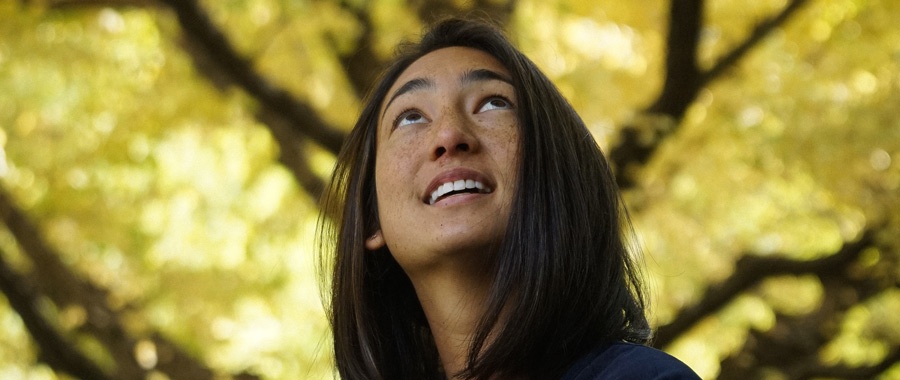The views expressed in our content reflect individual perspectives and do not represent the authoritative views of the Baha'i Faith.
“The cynics are right nine times out of ten,” said American journalist, essayist, satirist, cultural critic and scholar of American English Henry Louis Mencken. Do you believe him?
Unless you’re a child or young person with a full life of choices ahead of you, it sometimes seems hard not to turn into a cynic as a result of the onslaught of horrible news, violence, disruption, and disunity we see and hear every minute.
We get cynical when we feel disgusted and pained at the human condition, when we start to lose hope that human behavior will ever change. It takes strength of character and fortitude to get through the day when beset with personal, local, regional, or national problems seemingly bent on destroying our peace of mind, our security and our civil society as we know it. This fact of the modern age assails us no matter where we live.
So let’s drill down a little: a cynic is a person who believes that only selfishness motivates human actions; who disbelieves in or minimizes selfless acts or disinterested points of view; or a person who shows or expresses a bitterly or sneeringly cynical attitude. We live, many say, in a cynical age, when hope is hard to come by.
Cynics, for the most part, embrace pessimism and consider themselves pragmatic realists. So if a cynic is a realist with a pessimistic view of life and humanity, one who sees change for the better as an unlikely prospect, where do the actual realists and idealists fit in?
By definition, Baha’is have a generally optimistic and idealistic view of life. The renowned Serbian scholar and literary critic Bogdan Popovic, not a Baha’i himself, put it this way:
The Bahá’í Teaching carries in its Message a fine optimism – we must always in spite of everything be optimists; we must be optimists even when events seem to prove the contrary! And Bahá’ís can be hopeful, for there is a power in these Teachings to bring to humanity tranquillity, peace and a higher spirituality. – Professor Bogdan Popovic, quoted by Shoghi Effendi in Appreciations of the Baha’i Faith, p. 59.
The Baha’i teachings say that our individual point of view means a great deal when it comes to facing life and what the world throws at us. We filter every event that transpires, every feeling and emotion we have or acquire, every observation or word or thought that enters our brain through that unique individual point of view. It’s not easy to change an ingrained point of view, to rid ourselves of our ingrained misconceptions, prejudices and superstitions – it takes education, an open mind, and balance:
In order to find truth we must give up our prejudices, our own small trivial notions; an open receptive mind is essential. If our chalice is full of self, there is no room in it for the water of life. The fact that we imagine ourselves to be right and everybody else wrong is the greatest of all obstacles in the path towards unity, and unity is necessary if we would reach truth, for truth is one.
Therefore it is imperative that we should renounce our own particular prejudices and superstitions if we earnestly desire to seek the truth. – Abdu’l-Baha, Paris Talks, p. 136.
Personally, I have always been a spiritual, or internal, idealist, and an external realist. Being bipolar and having had episodes of mental illness since a I was teenager, reality is what I cling to. Finding the Baha’i Faith and a loving Baha’i community gave me hope and optimism that the human race wasn’t doomed, that we each had a role in making the world better, and that, indeed, humanity would one day create a phenomenal and peaceful world.
In our hearts, most of us share those lofty goals. The vast majority of humankind and you and I all hope the world could become a better place. Don’t we all wish that our leaders would unite in a common humanitarian coalition, promote justice and use their government staff to solve local, national, and world problems? Don’t we all want our tax dollars used effectively and honestly? Don’t most reasonable people want peace?
Even the pessimists, if you scratch the surface of their cynicism, have those common hopes. Perhaps they’ve worked for those goals and felt rebuffed, frustrated and defeated – which gave birth to that cynicism. The comedian George Carlin pointed that out when he said “Scratch any cynic and you will find a disappointed idealist.”
As a longtime Bahai, I try to maintain a middle stance between cynicism, pessimism, realism, and idealism. I have attuned myself to the words of Baha’u’llah and Abdu’l-Baha, who described the condition of the world and what we can do to fix it. The Baha’i teachings contain literally hundreds of books, tablets, letters and other writings that prescribe the remedy for humanity’s ills. As God’s sick patient, humanity has the choice to follow that prescription to survive and return to health:
A physician is needed to prescribe. Through his skill the principles of the book are correctly and effectively applied until the patient is restored to health. Christ was a heavenly Physician. He brought spiritual health and healing into the world. Baha’u’llah is, likewise, a divine Physician. He has revealed prescriptions for removing disease from the body politic and has remedied human conditions by spiritual power. – Abdu’l-Baha, The Promulgation of Universal Peace, p. 249.
Abraham, Khrisna, Buddha, Zoroaster, Moses, Christ, Muhammad and the Bab each had prescriptions for their time and age to solve humanity’s ills. All of these divine messengers, and many more, brought spiritual teachings for the healing of humanity. Eternal and never-failing, they still stand the test of time. They all brought the same spiritual message, and only differed in their physical aspects on laws and rules governing human behavior for the age in which they lived and presided over. Yet we have separated them and still fight over the interpretation and application of their social prescriptions.
In describing the teachings of Baha’u’llah, his son and successor Abdu’l-Baha said:
The first teaching is that man should investigate reality, for reality is contrary to dogmatic interpretations and imitations of ancestral forms of belief to which all nations and peoples adhere so tenaciously. These blind imitations are contrary to the fundamental basis of the divine religions, for the divine religions in their central and essential teaching are based upon unity, love and peace, whereas these variations and imitations have ever been productive of warfare, sedition and strife. Therefore, all souls should consider it incumbent upon them to investigate reality. Reality is one; and when found, it will unify all mankind. Reality is the love of God. Reality is the knowledge of God. Reality is justice. Reality is the oneness or solidarity of mankind. Reality is international peace. Reality is the knowledge of verities. Reality unifies humanity. – Ibid., p. 372.
The truth of the matter: at times, we’re all cynics, pessimists, realists, optimists and idealists. But I can tell you from my own life experiences these sixty-odd years that I’m happiest being an optimistic realist, never squashing my idealistic and increasingly realistic belief that we, humanity, will survive and thrive if we can unify and get our act together. The beautiful Baha’i teachings and the harmony and peace created by the diverse global Baha’i community give me hope that humanity can unify. I believe that we can and will.
















Comments
Sign in or create an account
Continue with Googleor